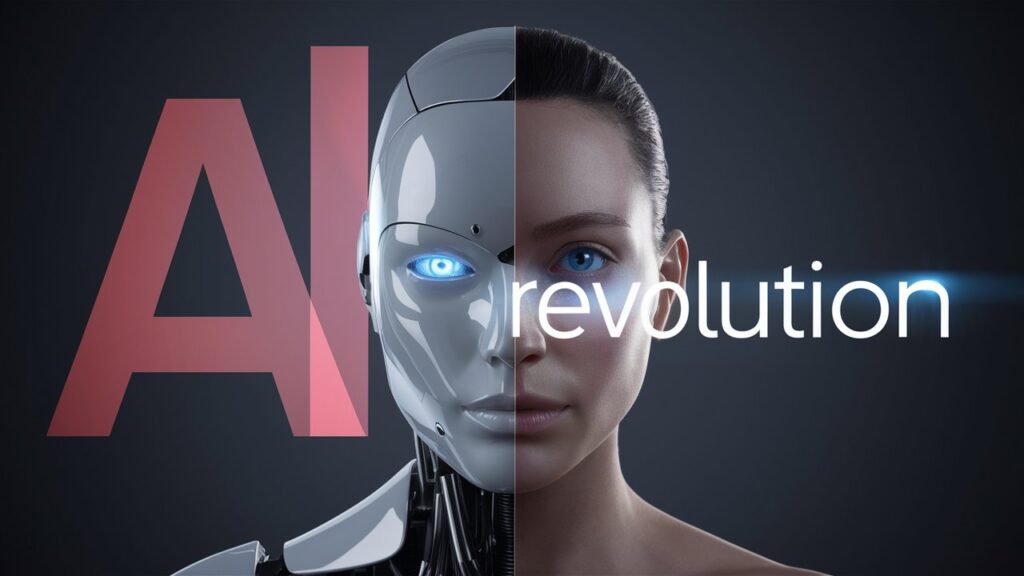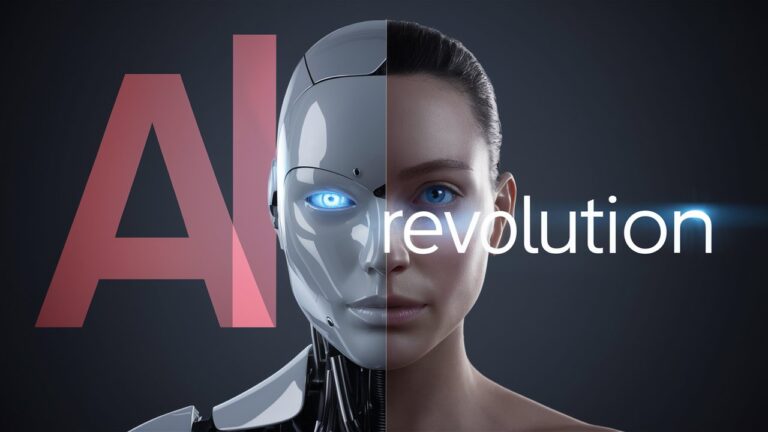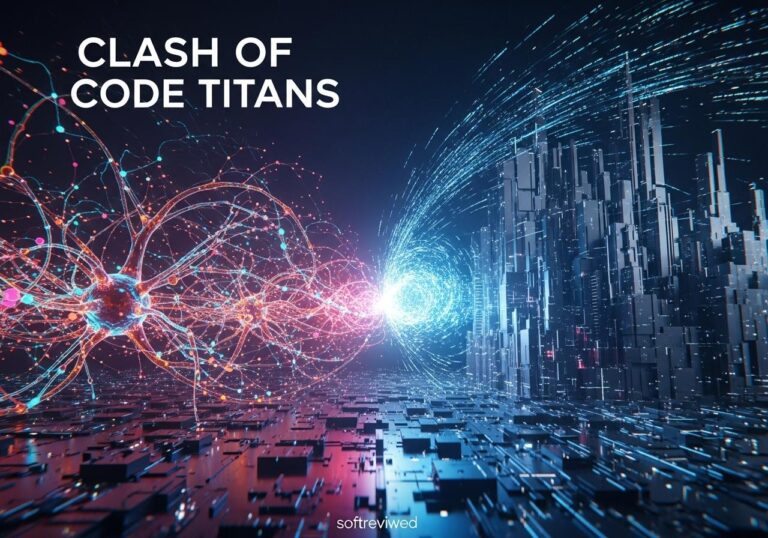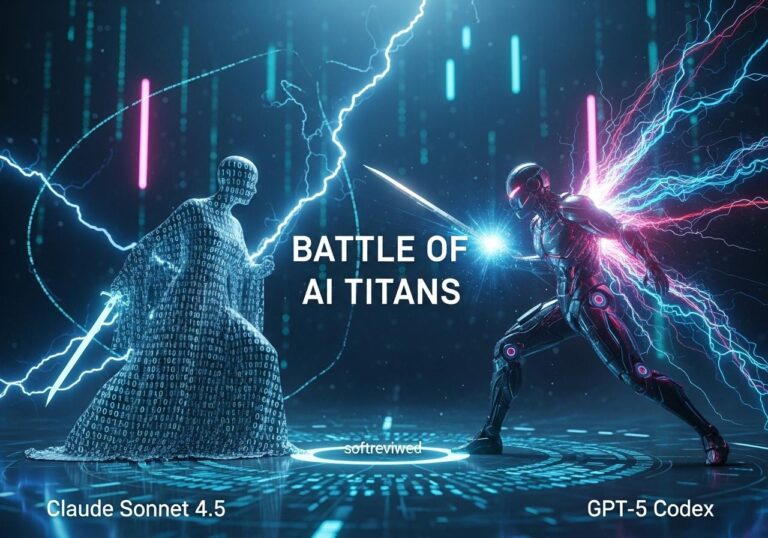OpenAI’s Journey to Human-Level AI
OpenAI is making significant strides towards achieving artificial general intelligence (AGI) with its innovative “Strawberry” project. This infographic explores the key aspects of this groundbreaking development and its potential impact across various sectors.
🧠 Project “Strawberry”
OpenAI is on the verge of achieving human-level AI reasoning with their new approach, code-named “Strawberry”.
🎯 Progress Tracking
A five-layer classification system has been developed to track progress towards AGI, with current technology at Level 1.
💼 Commercial Applications
Experts foresee potential applications in various sectors, including commerce, where AGI could revolutionize decision-making and streamline operations.
🏥 Healthcare Impact
AI with human-level reasoning could significantly impact healthcare by enhancing diagnostics, treatment planning, and drug discovery.
As OpenAI continues to push the boundaries of artificial intelligence, the potential for transformative applications across industries grows. The journey towards human-level AI reasoning marks a significant milestone in the field of AGI, promising exciting developments in the near future.
OpenAI’s Breakthrough: Advancing Towards Human-Level AI and Its Impact on Industries
In the rapidly advancing field of artificial intelligence, OpenAI has once again made headlines with a significant leap forward in the quest for human-level AI, also known as Artificial General Intelligence (AGI). This groundbreaking development, reported on July 17, 2024, has sent ripples through the tech world and beyond, promising to reshape industries and redefine the boundaries of what machines can achieve.
The Dawn of a New AI Era
OpenAI, a frontrunner in AI research and development, has reportedly made substantial progress towards creating AI systems that can reason and respond like humans. This advancement is not just another incremental step; it represents a potential paradigm shift in how we interact with and utilize AI technologies. Such a leap could redefine industries, enabling more efficient decision-making, personalized recommendations, and enhanced automation. Broadcom’s partnership with OpenAI exemplifies the growing ecosystem of collaboration between leading tech firms to accelerate these advancements. This union may further drive innovation, optimizing hardware and software to support increasingly complex AI models and ensure scalable, high-performance solutions.
OpenAI’s Classification Framework: A Roadmap to AGI
To better understand and track progress towards AGI, OpenAI has introduced a five-level classification system. This framework serves as a roadmap, helping researchers and the public alike to grasp the current state of AI technology and the path forward.
- Level 1: Current AI technology
- Level 2: Advanced language understanding
- Level 3: Human-like reasoning in specific domains
- Level 4: General human-level intelligence
- Level 5: Superintelligence
As of the latest reports, OpenAI’s technology is positioned at Level 1, with significant strides being made towards Level 2 and beyond.
The Power of Contextual Reasoning

One of the key aspects of OpenAI’s recent breakthrough is the enhancement of contextual reasoning abilities in AI systems. This capability is crucial for several reasons:
- Improved Understanding: AI systems with contextual reasoning can better interpret the nuances and subtleties of human communication.
- More Accurate Responses: By understanding context, AI can provide more relevant and precise answers to queries.
- Personalization: Contextual reasoning allows AI to tailor its responses to individual users, enhancing the overall user experience.
Applications Across Industries
The implications of this advancement extend far beyond the realm of pure technology. Let’s explore how various sectors stand to benefit from AI with human-level reasoning capabilities:
Healthcare Revolution
In the healthcare industry, AI with advanced reasoning could transform patient care in numerous ways:
- Enhanced Diagnostics: AI systems could analyze complex medical data, considering a patient’s full history and context to provide more accurate diagnoses.
- Personalized Treatment Plans: By understanding individual patient needs and medical contexts, AI could help create highly tailored treatment strategies.
- Accelerated Drug Discovery: AI with human-like reasoning could significantly speed up the process of identifying and developing new medications.
Commerce and Customer Service
The retail and customer service sectors could see dramatic improvements:
- Intelligent Shopping Assistants: AI could offer personalized shopping recommendations based on a deep understanding of customer preferences and contexts.
- Enhanced Customer Support: Chatbots and virtual assistants with advanced reasoning could handle complex customer inquiries more effectively, reducing the need for human intervention.
Education and Learning
The education sector could benefit from:
- Adaptive Learning Systems: AI could create personalized learning experiences tailored to each student’s needs, learning style, and pace.
- Intelligent Tutoring: AI tutors could provide more nuanced and contextually appropriate explanations and guidance.
The Competitive Landscape
While OpenAI’s progress is significant, they are not alone in the race towards AGI. Other major players in the field include:
- Anthropic: Known for their work on AI safety and ethics.
- Google: Leveraging its vast resources and data to push AI boundaries.
- DeepMind: Alphabet’s AI research laboratory, known for breakthroughs like AlphaGo.
This competitive landscape is driving rapid advancements in AI technology, with each company pushing the others to innovate faster and more effectively.
Ethical Considerations and Challenges

As we approach the possibility of human-level AI, several ethical considerations and challenges come to the forefront:
Job Displacement Concerns
One of the most pressing concerns is the potential for widespread job displacement as AI systems become capable of performing increasingly complex tasks.
- Reskilling and Upskilling: There’s a growing need for programs to help workers adapt to an AI-driven economy.
- New Job Creation: While some jobs may become obsolete, new roles centered around AI management and oversight are likely to emerge.
Benchmarking and Evaluation Standards
As AI systems become more advanced, there’s a critical need for robust benchmarking and evaluation standards:
- Ensuring Fairness: Standards must be developed to ensure AI systems are free from bias and discrimination.
- Performance Metrics: Clear metrics need to be established to measure the capabilities and limitations of AI systems.
- Safety Protocols: As AI becomes more powerful, safety measures must be put in place to prevent misuse or unintended consequences.
Data Privacy and Security
With AI systems processing vast amounts of data, privacy and security concerns are paramount:
- Data Protection: Robust measures must be in place to protect personal and sensitive information.
- Transparency: Users should have clarity on how their data is being used and processed by AI systems.
The Road Ahead: Future Implications
As we stand on the brink of this AI revolution, it’s crucial to consider the potential long-term impacts:
Economic Transformation
- Productivity Boost: AGI could dramatically increase productivity across industries, potentially leading to economic growth.
- New Business Models: The advent of human-level AI could give rise to entirely new industries and business models.
Scientific Breakthroughs
- Accelerated Research: AGI could speed up scientific research in fields like climate science, astrophysics, and materials science.
- Problem-Solving: Complex global challenges might be addressed more effectively with the help of advanced AI reasoning.
Societal Impact
- Education Revolution: Learning could become more personalized and accessible, potentially reducing educational inequalities.
- Healthcare Advancements: Improved diagnostics and treatment plans could lead to better health outcomes globally.
Expert Opinions
Let’s take a look at what some experts in the field have to say about these developments:
“As these abilities get better, they can change many fields, give businesses new and deep understandings, and start a fresh period of creativity and effectiveness.” – Mansoor, AI Researcher
This quote highlights the transformative potential of advanced AI across various sectors.
“While the progress towards AGI is exciting, we must remain vigilant about the ethical implications and ensure that these powerful technologies are developed responsibly.” – Dr. Emma Chen, AI Ethics Specialist
Dr. Chen’s statement underscores the importance of ethical considerations in AI development.
Conclusion: Embracing the AI Future
OpenAI’s recent breakthrough in advancing towards human-level AI marks a significant milestone in the field of artificial intelligence. As we move closer to AGI, we stand on the brink of a technological revolution that promises to transform industries, boost productivity, and open up new frontiers of innovation. OpenAI’s development of multimodal AI in industries holds the potential to greatly improve efficiency and decision-making processes across various sectors, including healthcare, finance, and manufacturing. By harnessing the power of AI to understand and interpret diverse sources of information, companies can gain a competitive edge and drive groundbreaking advancements in their respective fields. As we continue to witness the evolution of AI, it becomes increasingly apparent that the possibilities for revolutionary change are virtually limitless.
However, this progress also comes with responsibilities. It’s crucial that we approach these advancements with a balanced perspective, addressing ethical concerns, establishing robust evaluation standards, and ensuring that the benefits of AGI are distributed equitably across society.
As we navigate this exciting yet challenging landscape, ongoing dialogue between technologists, policymakers, and the public will be essential. By fostering collaboration and maintaining a focus on responsible development, we can work towards harnessing the full potential of human-level AI while mitigating potential risks.
The journey towards AGI is not just about technological achievement; it’s about shaping a future where artificial intelligence enhances and empowers human capabilities, leading to a more innovative, efficient, and hopefully, more equitable world.
Stay informed, engage in discussions, and be part of shaping the AI-driven future that lies ahead. The era of human-level AI is approaching, and its impact will be felt across every aspect of our lives.







